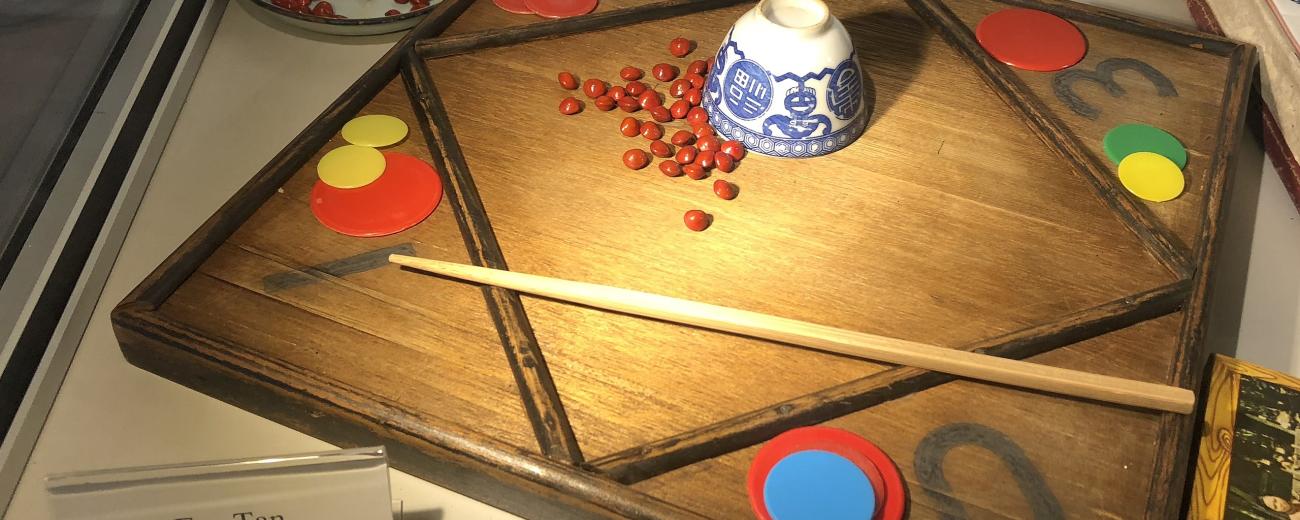
The worst of all gambling games: Fantan 番攤 in southern China during the Qing era

Key information
- Date
- Time
-
5:00 pm to 6:30 pm
- Venue
- Russell Square: College Buildings
- Room
- RB01
About this event
Abstract
A visitor to some of the giant Las Vegas-like casinos in modern-day Macao might have the opportunity to notice, among the hundreds of tables devoted to modern Western games like baccarat, black jack, roulette, a couple of larger tables where a decidedly intriguing game is taking place. This game has no dice, cards, dominoes, turning wheel or electronic devices. Instead, the croupier uses a long bamboo stick, a small brass cover and a few hundred tiny plastic buttons as tokens. This game is called fantan 番攤. Fantan is no more a familiar game to most people in modern-day China or elsewhere in the world. These handful of tables in Macao, mostly patronized by ‘old-timers’, are the last remnants of a lost glory. Yet, fantan stands out in the history of gambling as the only gambling game which has remained alive and virtually unchanged for two millennia.
Despite such an outstanding longevity, however, several crucial evolutions of the game can be noted. From the Han dynasty to the Tang, fantan made its way from the elite down to the lower classes of the population. But even if the game was played throughout the Empire in earlier periods it was never one of the most popular games. During the mid-Qing period, two crucial changes took place: fantan became a specifically Cantonese game (a feature it has retained until today) and became the most popular gambling activity in the Pearl river region. The socio-historical changes surrounding the game have as yet never been explained. In this seminar, Professor Paulès shall argue that by making use of a wide range of previously untapped sources and by paying special attention to the role of the diaspora, it is possible to provide a satisfactory narrative of these changes.
About the speaker
Xavier Paulès is Associate Professor at EHESS. He was the head of the Centre d’études sur la Chine moderne et contemporaine from 2015 to 2018. His last publications in English include Living on Borrowed Time: Opium in Canton, 1906–1936, Berkeley: University of California Press, 2017. His last book in French is the most up to date historical synthesis on Republican China, namely La République de Chine, 1912–1949, Paris: Belles Lettres, 2019. Dr Paulès' present research interests include Chinese urban history and focus on the history of gambling, especially the game of fantan 番攤.
Registration
This event is open to the public and free to attend, however registration is required.
Please note that this seminar is taking place on campus.
Chair: Dr Lars Laamann, Department of History, School of History, Religions & Philosophies
Organiser: SOAS China Institute and SOAS Department of History
Contact email: sci@soas.ac.uk


